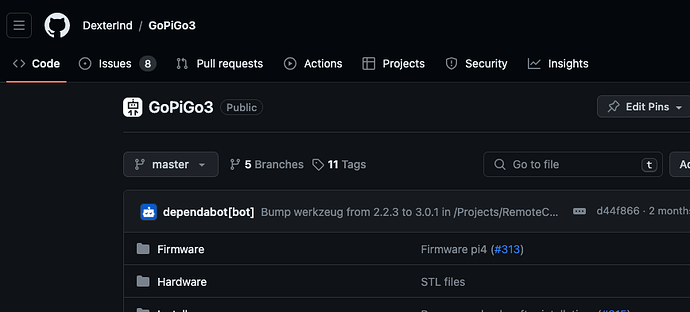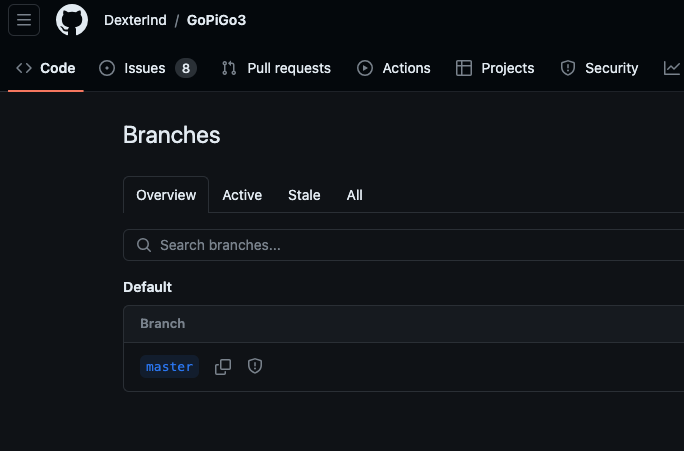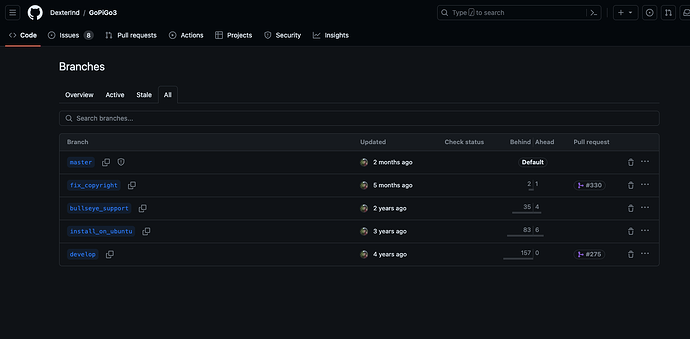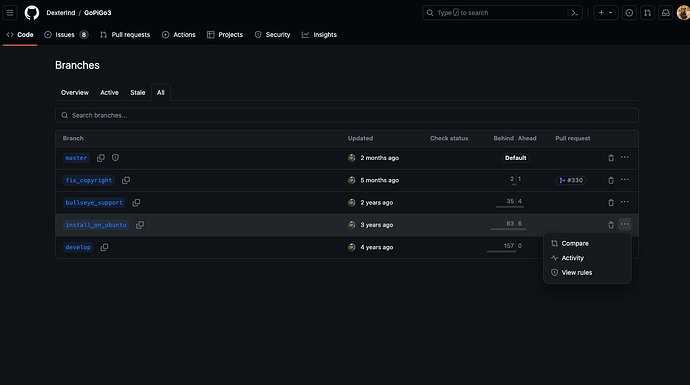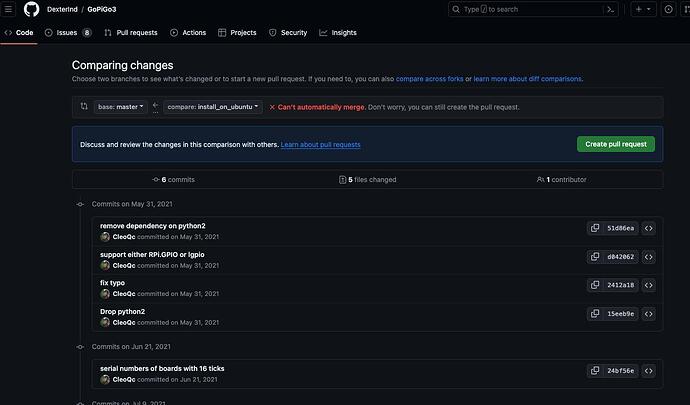Just for the Grins and Giggles, (![]() ), I want to see what happens when I try to install the GoPiGo-3 Libraries on the Jetson Nano’s operating system and I want to dotouch /lib/modules/4.9.253-tegracument what happens here while I do it.
), I want to see what happens when I try to install the GoPiGo-3 Libraries on the Jetson Nano’s operating system and I want to dotouch /lib/modules/4.9.253-tegracument what happens here while I do it.
First:
What I am working with right out of the gate:
-
A first-generation 4 gig Jetson Nano.
- Supposedly the second-generation boards are spec-compatible, but there are a couple of “gotchas!” that might, but probably don’t, affect anything.
-
The latest version of the Jetson Nano’s O/S - JetPack 4.6.1 - which is based on Ubuntu 18.4. (I believe the latest version of Ubuntu for the PC is somewhere around 22 or 24-dot-something.)
- Note that the username is set to “pi”, (a hard requirement), and the password is set to “robots1234”, (which may not be a requirement), just to keep things simple.
-
the M.2 WiFi module that you could buy as an accessory back in 2019 when I bought the beastie.
-
A surface mount battery clip that fits a CR1220 battery, (and the battery itself), to enable persistence for the on-board RTC. There are solder-pads and silk-screen markings for it, it’s just not populated. I added one and the corresponding battery.
Second:
What I’m doing step-by-step. Note that I don’t know if this will even work when I’m done, or it might install itself into a corner.
As root run the following:
-
touch /lib/modules/4.9.253-tegrato create a missing file that apt-get upgrade complains about. -
apt-get update -
apt-get install apt-utilswhich is a missing dependency for many updates. -
apt-get upgradeto get everything else to current rev. -
apt-get install python-pip python3-pip
(Both python2 and python3 are reqired for the install script.) -
apt-get install libqt5scripttools5Apparently these are needed for the scripts to run. -
apt-get install curlis needed to install setup_tools later on. -
(optional, but I find them useful)
apt-get install gparted gddrescue
gparted is a graphical front-end for parted and ddrescue is a very useful tool for moving device images and recovering data - like dd on steroids. -
If you want the man pages, (which are deliberately missing to save space):
/usr/local/sbin/unminimize
. . .which has a pretty large footprint. This might be a good idea for initial experimentation, especially if you have a large drive/card for the O/S, but you may want to omit them, (not run the script), for a “production”, (think “space constrained” or “embedded”), system where you want the max space for your stuff, instead of a bunch of text.
Note that when I tried it, it took a very long time and eventually went all pear-shaped so I ended up reflashing the SD card and starting from scratch again. -
git clone http://www.github.com/DexterInd/GoPiGo3.git /home/pi/Dexter/GoPiGo3
This brings down all the files needed for the install.
As a non-privileged user (“pi”):
-
curl -kL dexterindustries.com/update_tools | bash -s -- --install-python-package --system-wide -
bash /home/pi/Dexter/GoPiGo3/Install/update_gopigo3.sh
=====================
Output of the “successful” run on the Jetson Nano with JetPack 4.6.1, (Ubuntu 18.4)
https://www.mediafire.com/file_premium/58lkq3jiw4wxnpn/Jetson_Nano_update_gopigo3.log/file

